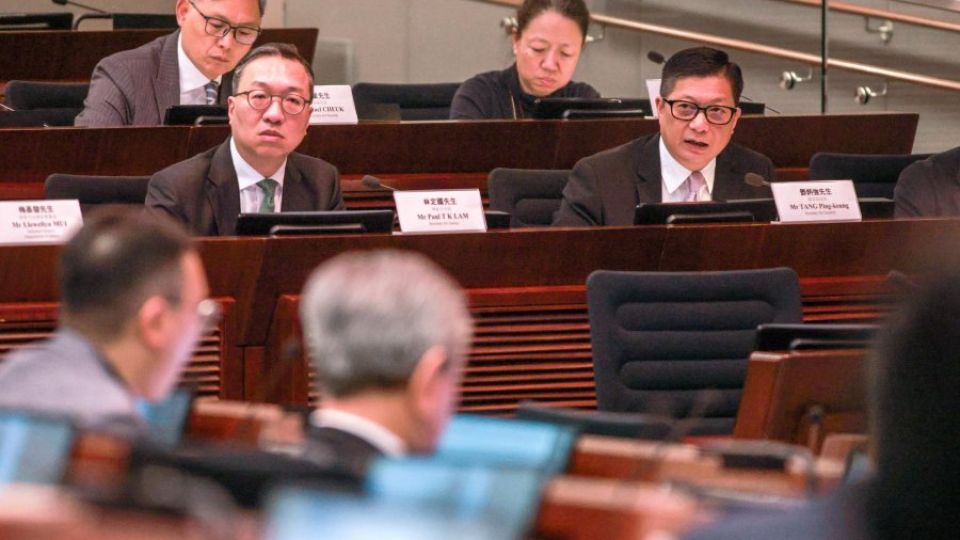March 7, 2024
HONG KONG – A higher penalty for acts that endanger national security involving foreign collusion, and permission to mount a “public interest” defense to suspects in State secrets theft cases are among proposals the Hong Kong government is considering for its new part of the national security ordinance currently in the making.
In a document submitted to the city legislature’s joint panel on legislation of Article 23 of the Basic Law, the special administrative region government said it will also consider whether the use of unmanned tools, such as drones, can be considered acts of espionage.
The 220-page document also revealed that most of the respondents to the city’s monthlong public consultation regarding the legislation agreed that the new ordinance should have extra-territorial effect for certain offenses.
As for enforcement, the government is considering tightening the threshold for early release of prisoners and ways to combat abscondment, as well as ways to secure the return of those who have absconded, from facing the law.
Measures to protect anyone handling national security cases or performing duties involving national security will also be considered, along with improvements to criminal procedures relating to national security cases.
One possible approach that is being considered as a means to compel fugitives wanted by the police for endangering national security to return to Hong Kong is to revoke their passports, Secretary for Security Chris Tang Ping-keung revealed at the meeting.
The government is also actively exploring options such as reducing welfare benefits and revoking professional qualifications or business licenses in Hong Kong, Tang said.
Tang emphasized that every possible method will be employed to ensure that fugitives overseas pay a price for their actions.
These proposals, which are now being actively considered by the government, were compiled in response to the views collected during the consultation period. Over 13,000 comments were received from people of all walks of life — including representatives of political parties, consuls-general, and legal groups — over 98 percent of which expressed approval of the legislation.
On Jan 30, Hong Kong began its public consultation on the legislation of Article 23 of the Basic Law, which requires the city to enact laws on its own to prohibit seven types of crimes endangering national security, including treason, theft of State secrets and secession. The government proposed introducing a new piece of legislation, named the Safeguarding National Security Ordinance.
Speaking at the meeting, Secretary for Justice Paul Lam Ting-kwok said that the government, after taking into account the views received, will provide clear definitions of terms such as “treason”, “public infrastructure”, “a prohibited place” and “confidential information” when drafting the law.
Lam said the draft law will also take into consideration the legal principle of criminal law, which requires that the intention to commit a crime — and knowledge of it being a crime — must be proved.
According to Tang, most of the responses garnered focused on the scope of individual offenses, their target of application, penalties, defenses and so on, adding that many of the comments were concerning the offenses of unlawful drilling, seditious intention and external interference, and offenses relating to State secrets, espionage, and the offense of external interference.


